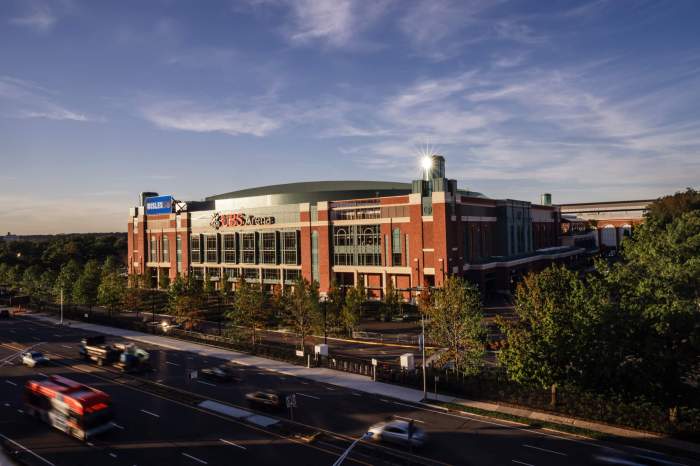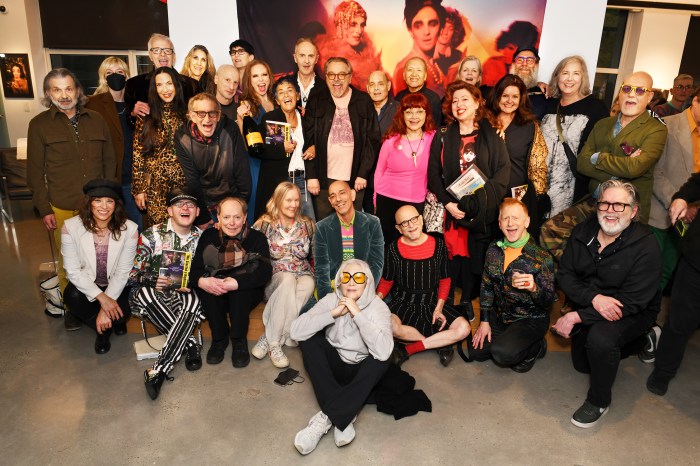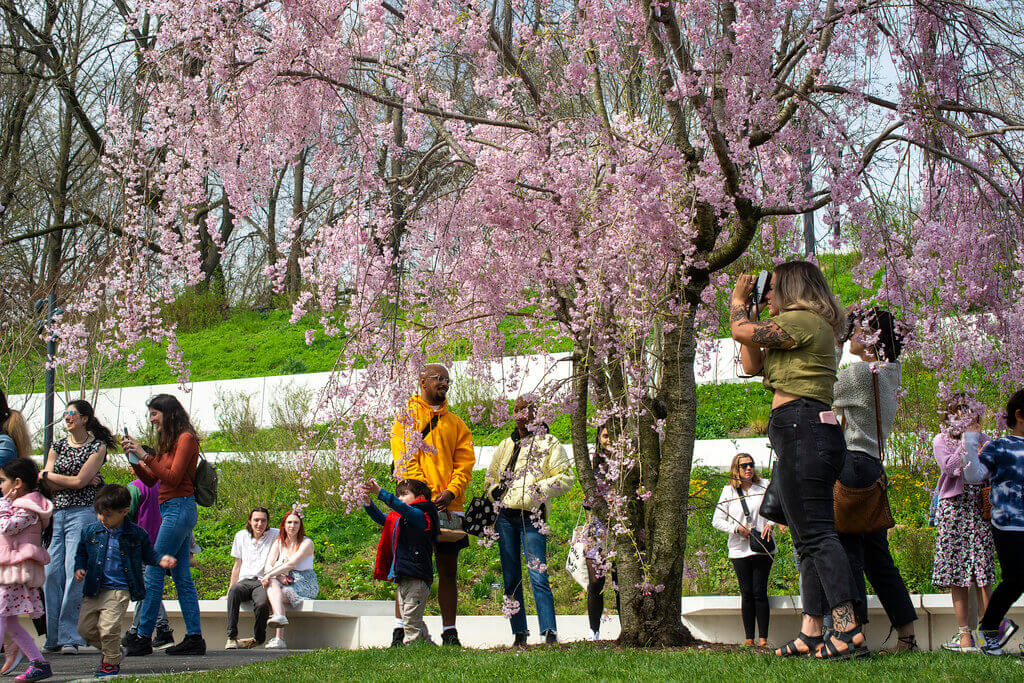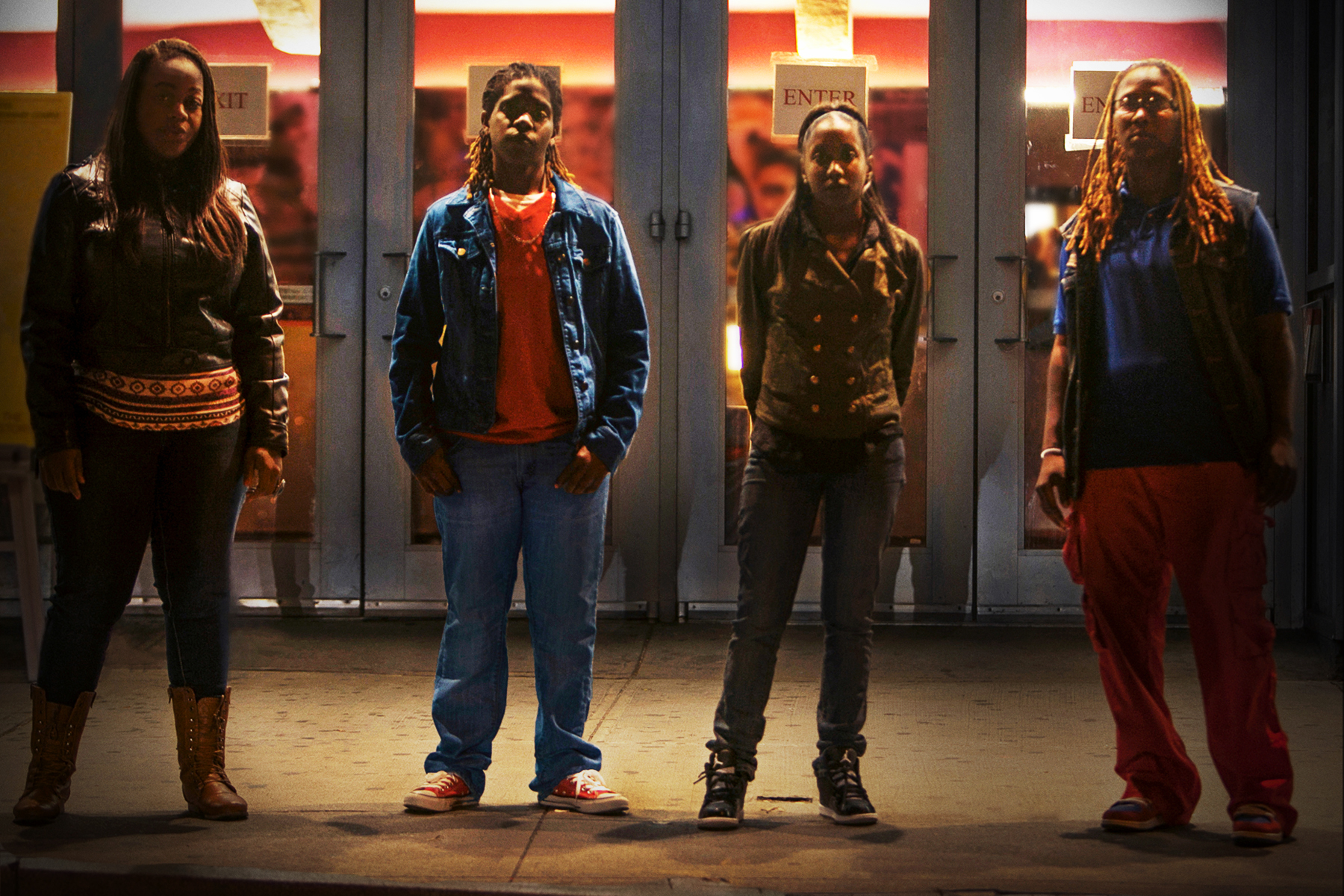
BY WINNIE McCROY | For LGBT youth who come from across the boroughs and New Jersey to hang out in the West Village, this historically gay neighborhood is a place where they are able to be out and proud. For some, it is the only place where they can truly be themselves — but in August 2006, a group of young African-American lesbians who fought back after being harassed and attacked were vilified by the media, and charged by the criminal justice system. Director/producer blair dorosh-walther tells their story in the documentary “Out in the Night,” which is streaming on pbs.org through July 23.
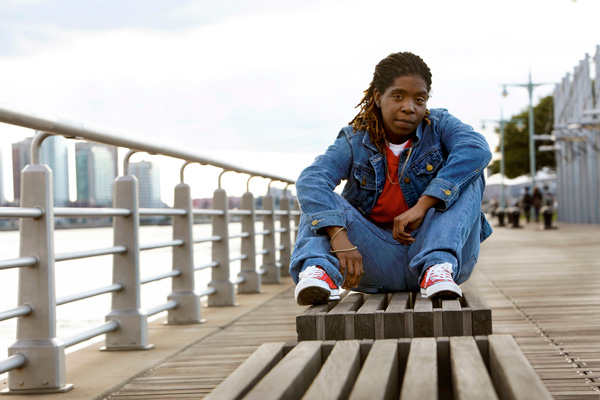
“My friends and my lives were in danger, so there was need to defend ourselves,” Terrain Dandridge told Chelsea Now. “If we hadn’t, someone would not be here today.” Another noted that they were afraid for their lives, and that their families didn’t even know they were locked up for 24 hours.
The documentary opens with the sound of a police emergency call, street footage of the scene, and salacious headlines like “Attack of the Killer Lesbians” and “Lesbian Wolf Pack” touting the “gang beating” of a 28-year-old man just for “complimenting” a group of young women.
For the young women who experienced the harassment, the situation could have easily turned deadly, as in the similar case of Sakia Gunn, the lesbian killed at a Newark bus stop. The four girls — Terrain Dandridge, Renata Hill, Patreese Johnson and Venice Brown — lived in New Jersey, and were used to tough streets.
But they viewed the Village as “a safe haven,” a place to “hit on a few chicks, get a few numbers and go home.” When they passed a man sitting on a fire hydrant outside the IFC Film Center (Sixth Ave. at W. Third St.), that’s when trouble started. According to testimony read by an actor, the man thought, “One was slightly pretty, so I said hi to her.”
“He said, ‘Lemme get some a that,’ and pointed to my crotch,” asserts Johnson in the film. But when she told him she was gay, Johnson said the man began calling them names, and threatening to rape them. As the man approached the women, he spit and threw a lit cigarette at them.
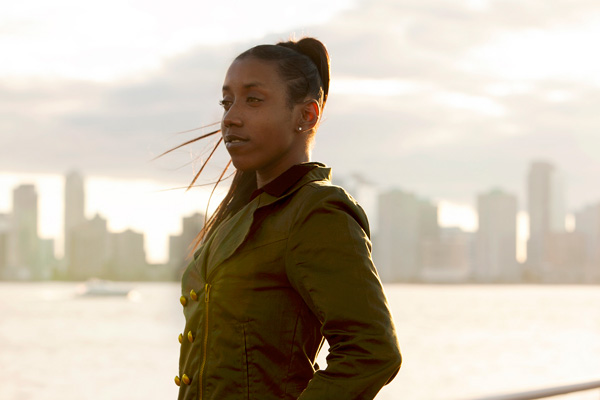
“No means no; just take no,” said one woman as the situation unfolded. But when the man swung, they fought back. He choked one of the women and pulled a handful of another’s hair out. In response, one stabbed him with a penknife.
When the police arrived, arresting officer Christopher O’Hare said the girls were high-fiving each other. He arrested seven women, who were taken to Rikers Island, where some were kept for nine months.
Hill’s lawyer, Susan Tipograph, said prosecutors insisted on keeping the women locked up while they pursued “Draconian sentences.” They were told they faced 25 years in prison if they fought charges. Three pled guilty. The others claimed self-defense.
“They said in order for me to take the deal I need to plead guilty, but I’m not going to say that I’m guilty. I felt so confident I’m not pleading guilty, because I’m not guilty. I defended myself. Let the people judge it,” said Johnson in the film.
But the people were led by the media, which twisted the story. As dorosh-walther noted, “The headline ran, ‘Man is stabbed after admiring a stranger.’ An admirer? I really could not believe it. A man does not ‘admire’ teenage girls on the street at midnight. That is harassment.”
The New York Post’s Laura Italiano was among the journalists who stoked the flames. The prosecutor painted a picture that had an innocent man saying hello to a group of angry lesbians, who attacked him unprovoked. It wasn’t until later, when she read the litany of anti-gay comments on the man’s website, that she had to reexamine the case.
“I was stunned and felt as though the media betrayed us,” said Hill in an email. “The fact that the articles were written before even trying to get our side of the story really disturbed me. ‘Innocent bystander’ was nowhere near what this guy was. It angered me more that they accused us of hating men. I have a son, three brothers and a male best friend.”
“This case is an example of the mainstream news media’s lack of understanding of intersectional identities. This was the perfect storm of these Black, lesbian, women, gender non-conforming, poor youth. Each of these identities played a role,” added dorosh-walther — who originally became involved as an activist, believing that, “too often white filmmakers tell people of color’s stories, specifically African Americans and often stories about poor or incarcerated African Americans. This is prevalent in the documentary world as well and I did not want to add to it.”
So she worked on the women’s cases for two years. When their appeals approached and she was the only one still “passionate and outraged by it,” she didn’t want the story swept under the rug, and “began a long interview process. I wasn’t going to make this film if they were not comfortable with me.”
Between media depictions and the stereotypes that jurors were fed, the women “didn’t have a chance the moment they walked into that courtroom,” says dorosh-walther. Some of the most redeeming evidence was never exhibited, like footage of the man attacking the women, and the police radio transcripts that described it as only a minor incident with a penknife — not a gangland stabbing.
“It surprised me how crass and cynical the judge is — both through the transcripts and in an interview (off camera),” added dorosh-walther. “I didn’t have too much faith in our criminal legal system before I began this project, but I was shocked at just how egregious it is day in and day out. The appellate court has often cited this judge for misinstruction to the jury and frequently lessens his sentences. But nothing happens to [him]. Where is the oversight? Why is this judge still on the bench?”
Video footage from the IFC Center shows that the women were walking by when the man accosted them. After an initial skirmish, a group of men jumped in to protect the girls from the attack. But prosecutors never heard from them.
“The system wasn’t built to be on my side, being black, young and a lesbian,” said Johnson. “I went to trial because I believed in the system. Watching ‘Out in the Night,’ I realized how much evidence could have helped out our defense. It was clear the system was not really seeking justice or giving us a fair chance to fight for our freedom.”
The women were found guilty of varied Assault and Gang Assault offenses, and sentenced to between 3.5–11 years in prison. All were sent to Albion Correctional Facility, near the Canadian border.
“They didn’t tell how my daughter was attacked, and choked. It’s called gay-bashing, but they won’t call it that,” said Hill’s mother Mollie. “My daughter is in jail for eight years for defending herself.”
The “New Jersey 4” eventually appealed their case, and got some of their sentences lessened, but not after most had served two years for defending themselves in a fistfight. Johnson remained in prison until 2013.
Elements of homophobia, sexism, classism and racism are clear-cut in this case. Watching the powerful documentary will sicken some, and challenge most New Yorkers to question whether there is any justice at all in our criminal justice system.
“None. Not at all. Not even a little bit,” answers dorosh-walther to that question. “I think that without the activist organization FIERCE, these women wouldn’t have had much support at all. I think this happens every day.”
Most of the women involved say they wouldn’t do anything different, and are grateful to dorosh-walther for telling the world about the injustice that was done to them.
“I would like for everyone who are angry…to fight with us for #BLACKLIVESDOMATTER…and get the word out about ‘Out in the Night’ and similar cases,” said Johnson. “No longer should anyone stand by and let the system continue to take advantage of our youth and their lives.”
“Out in the Night” streams through July 23 at pbs.org/pov. For more info, visit outinthenight.com and facebook.com/OutInTheNight.










